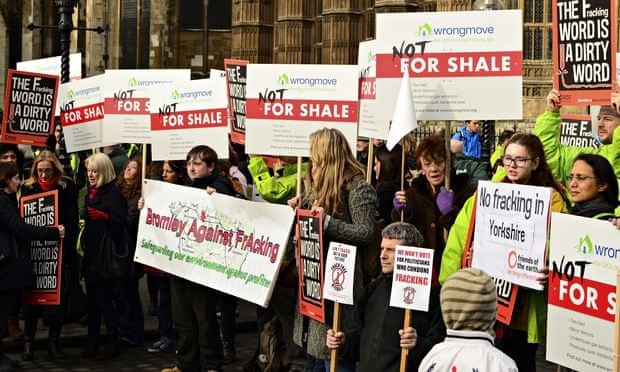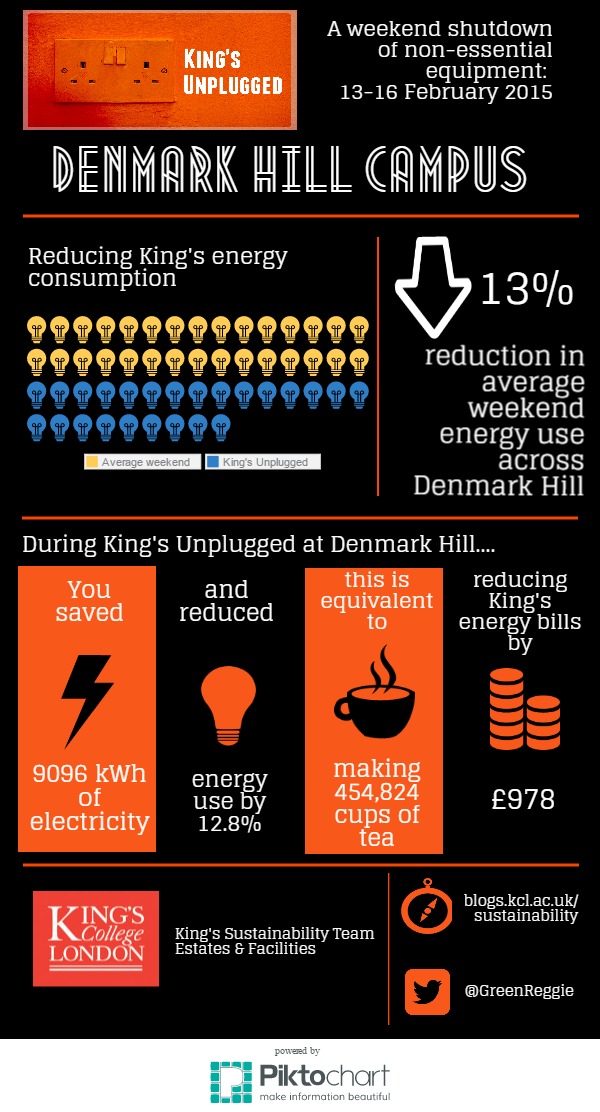[This guest post comes courtesy of Justin Fisher, a former Masters student and alumni member of KCL Fossil Free. The views presented do not necessarily reflect those of King’s Sustainability]
Last Wednesday marked an important day for King’s as President and Principal Ed Byrne hosted his first Principal’s Debate. This was in response to King’s Fossil Free campaign, which has for more than a year been increasing support for its motion asking the College to divest  itself from the fossil fuel industries. For those who have not followed the progress of the campaign, it really kicked off in October with the submission of a 1200 signature petition to the university administration. While that number has since increased to over 1400, the university finally declined the divestment option formally in mid-February. However, much to King’s credit, the Principal’s Debate went ahead as scheduled, and it made for a most lively and engaging evening, and further demonstrated the scope of the passionate support for divestment at King’s.
itself from the fossil fuel industries. For those who have not followed the progress of the campaign, it really kicked off in October with the submission of a 1200 signature petition to the university administration. While that number has since increased to over 1400, the university finally declined the divestment option formally in mid-February. However, much to King’s credit, the Principal’s Debate went ahead as scheduled, and it made for a most lively and engaging evening, and further demonstrated the scope of the passionate support for divestment at King’s.
The question at hand was, ‘Is divestment from fossil fuel companies a useful policy tool to bring about action on climate change?’ Representing the College on the ‘no’ side were King’s VP of Research & Innovation Chris Mottershead and King’s Professor of Climate & Culture Mike Hulme. Speakers on the ‘yes’ side included Mark Campanale, co-founder of the Carbon Tracker Initiative, and Mark Horowitz, a PhD candidate in neuroscience at King’s and one of the initiators of King’s divestment campaign. Each speaker was allowed to make their case before fielding questions from the audience and making some final rebuttals.
Chris Mottershead has been in close contact with the campaign for months, and it was to him that the petition was given back in October. Interestingly, Mottershead has spent the majority of his career working for BP, and he has perhaps unsurprisingly been weary of endorsing divestment at King’s. In his remarks he focused attention on the role of governments in owning and controlling the majority of carbon reserves, seemingly trying to make the case that fossil fuel companies are not the ones driving fossil fuel extraction, and the role of consumer demand. He was also careful to focus on the global need for fossil fuels, and reiterated time and again the need for consistency in the ways King’s invests. However, he admitted that he does not believe that King’s has any current investments in renewables. One of the most powerful concessions of the debate came when an audience member bluntly confronted Mottershead with the question of whether his three decades of experience working with BP created a conflict of interest with the divestment question. Mottershead responded that it ‘probably’ did. He also compromised his position when he claimed, late in the debate, that fossil fuel companies don’t actually have much political power, which drew loud jeers from the audience. Clearly the crowd was not buying what Mottershead was selling, though few would deny the importance of government action. Indeed, that is one of the primary aims of the divestment campaign.
Professor Hulme proved a welcome and intriguing addition to the panel. A Nobel-laureate for his work with the IPCC, his experience working with climate change is beyond question, and his academic approach to the topic provided a lot of interesting debate and easily provoked the majority of the questions from the audience. Hulme carefully explained the importance of economic development in the poor world and technological innovation in mitigating the worst impacts of climate change, and continually reiterated that reducing the question of climate change to carbon emissions is an oversimplification. He offered a reminder of the range of challenges brought about by climate change, and explained why he preferred a broad approach with multiple targets. He was also fixated on the semantics of the question, as he reiterated time and again that he did not believe that divestment was a useful policy tool, nor did he believe that it would bring about what he believed to be the necessary range of actions to address the myriad problems posed by a rapidly changing climate. However, when he eventually conceded that divestment may well be a useful tool for social mobilisation, there was a noticeable buzz of excited exasperation from the crowd. Indeed, it seems as though few of Hulme’s points were incompatible with the aims of the fossil free campaign, and he did offer an important reminder of the complexity and diversity of the issue.
Mark Campanale offered a level and analytical approach to the question, which is not surprising given his role in helping to found the Carbon Tracker Initiative. It was Carbon Tracker that first coined the term ‘carbon bubble’ and explained its implications; if the world takes action to limit global warming to below 2°C, in any form, then as much as 80% of  known carbon reserves will be left in the ground. Given that fossil fuel companies are valued largely on the reserves they hold, these so-called ‘stranded assets’ would rapidly sink such companies and lead to a crisis similar to that when the US housing bubble burst in 2008, only far worse. That bubble was worth a staggering $2.8 trillion. The value of the carbon bubble? An unfathomable $28 trillion. Campanale explained carefully the financial folly in continuing to invest in companies whose future projects are all but guaranteed to lose money, providing a sound financial case for divestment.
known carbon reserves will be left in the ground. Given that fossil fuel companies are valued largely on the reserves they hold, these so-called ‘stranded assets’ would rapidly sink such companies and lead to a crisis similar to that when the US housing bubble burst in 2008, only far worse. That bubble was worth a staggering $2.8 trillion. The value of the carbon bubble? An unfathomable $28 trillion. Campanale explained carefully the financial folly in continuing to invest in companies whose future projects are all but guaranteed to lose money, providing a sound financial case for divestment.
Mark Horowitz was the final speaker and he made the most of his time, deftly covering a range of issues from scientific projections of the effects of increased carbon emissions to the advent of grid parity in much of the poor world (where renewable power has become a more affordable option than fossil fuels) to the political obstruction of fossil fuel companies undermining climate regulations. He patiently explained that the position of the campaign is not a radical one; rather, that of companies’ intent on burning far more carbon than is known to be compatible with life on this planet is as radical as it gets. He offered an impassioned and logical approach and against Mottershead and Hulme’s assertions that fossil fuel companies provide a social good, asked at what point does the negative begin to outweigh the positive, bringing about the need for a change in the balance of power? Horowitz asserted that perhaps the decades of experience on the other side of the table had fostered a complacency towards the status quo when what is needed more than ever are fresh perspectives.
The most engaging part of the evening were the audience questions that came after each speaker made their case, some of which have been alluded to above, which lasted for more than an hour. The general mood of the room was encapsulated in an assertion from an audience member that they had no doubt that King’s would eventually divest, and the real question was whether it was going to be a leader or a laggard. Indeed, with other London universities such as SOAS and LSE setting formal processes to work on the question, King’s is already looking more like a follower than a global leader.
The debate ended with Ed Byrne asking the audience to show its support for one side or the other by way of applause. The thunderous racket in support of divestment, accompanied by a visual show of support with audience members holding the Fossil Free logo, boisterously summed up the excited pro-divestment sentiment of the crowd. The debate offered a tremendous platform for both sides to explain their stance, and a lot of genuinely useful dialogue was generated as a result. At the end, though, one could not help leaving feeling as though support for divestment is growing. It was good of King’s to participate in such an event, and we shall now wait and see how well the administration was listening.



 King’s Food venues will be offering a Fairtrade Rocky Road or Granola bar for ½ price with any Fairtrade hot drink purchased during Fairtrade Fortnight. They are also holding two Fairtrade tasting sessions on Tuesday 24th February at Guy’s Campus and Tuesday 3rd March at Strand Campus.
King’s Food venues will be offering a Fairtrade Rocky Road or Granola bar for ½ price with any Fairtrade hot drink purchased during Fairtrade Fortnight. They are also holding two Fairtrade tasting sessions on Tuesday 24th February at Guy’s Campus and Tuesday 3rd March at Strand Campus.


